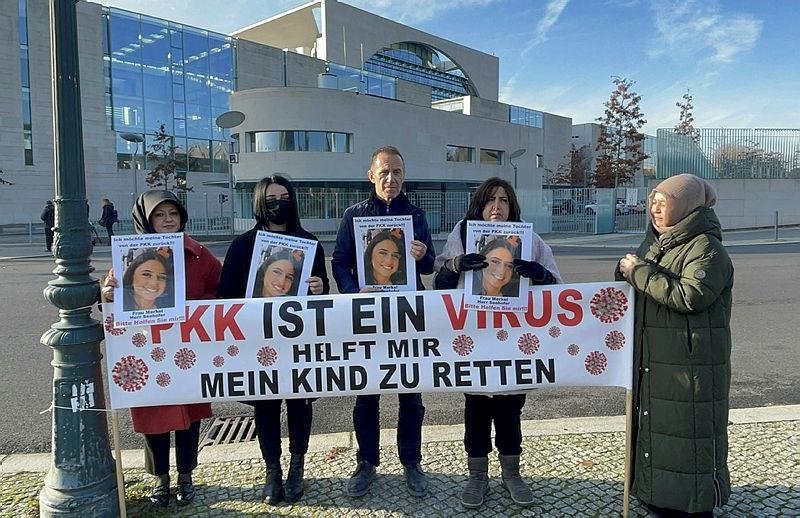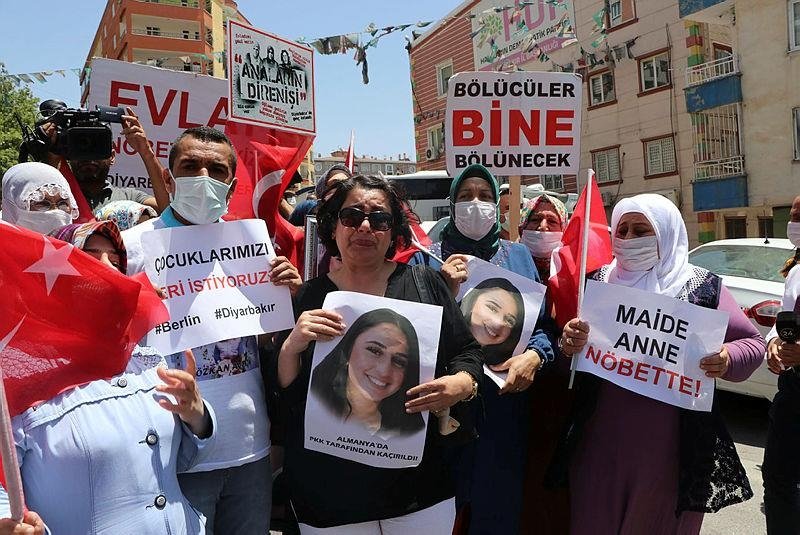A German-Turkish mother protests every Wednesday in front of the Federal Chancellery to raise awareness about the PKK terror group's forced recruitment of young adults and minors.
Maide T., who is seeking help from the German government to rescue her daughter, has been trying to catch the attention of Chancellor Angela Merkel and Interior Minister Horst Seehofer, who go to the Chancellery every Wednesday for a weekly Cabinet meeting.
She is supported by sympathizers who hold a banner that reads: "The PKK is a virus. Help me save my child."
"Actually, I am not in a position to protest. I have a difficult treatment process ahead of me. Before starting this process, I felt the need to protest one last time because of the second anniversary of my daughter's kidnapping," she said.

The mother said she will continue to protest after her treatment is finished and had a message for her daughter.
"I'm really sick. I don't know what the irreligious infidels who took you said to you, how they stole your mind. But shame on you if you believe in those unscrupulous people. I am sick. I have a rough treatment process ahead of me. It is not clear whether I will get through this process. Shame on you if you don't come even though you heard about it," she said.
Maide T. said her daughter, Nilufer T., has been missing since November 2019.
Nilufer T. was influenced by PKK propaganda after visiting a cultural center in Berlin, which was used by the terror group to brainwash young people and recruit them, she said.

The PKK has been classified as an "ethno-nationalist" and "separatist" terror organization by the EU's law enforcement agency, Europol, and has been banned in Germany since 1993.
But it remains active in the country with nearly 14,500 followers among the immigrant population.
Turkey has long criticized German authorities for not taking serious measures against the PKK, which uses the European country as a platform for recruitment, fundraising and propaganda activities.
In its more than 35-year terror campaign against Turkey, the PKK-listed as a terrorist organization by Turkey, the US, and EU-has been responsible for the deaths of 40,000 people, including women, infants and children.